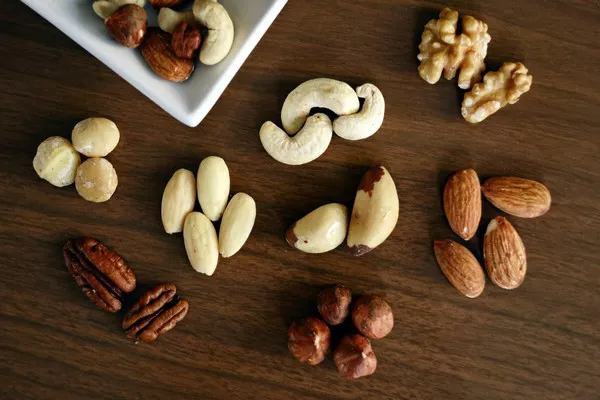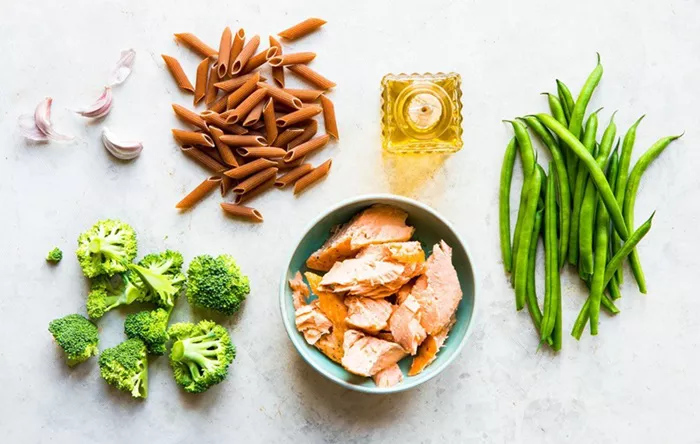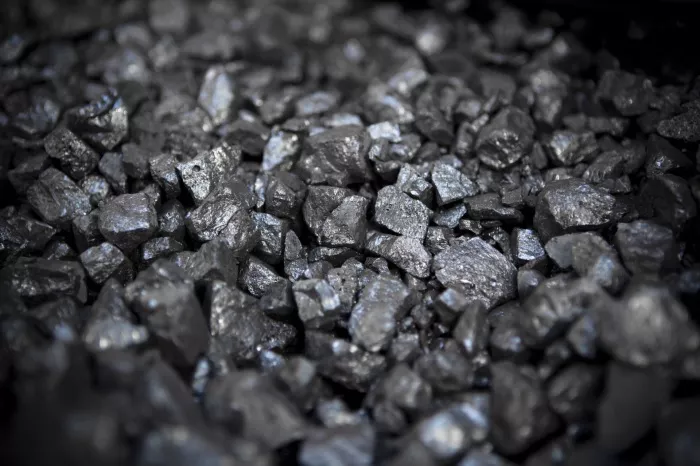Protein is an essential macronutrient that plays a critical role in maintaining and repairing tissues, supporting immune function, and promoting satiety. For women, protein intake is of particular importance, as it aids in muscle preservation, hormonal balance, and overall well-being. Protein powders have gained popularity as a convenient way to supplement dietary protein intake, but with a plethora of options available, selecting the best protein powder can be daunting. In this article, we explore the considerations when choosing protein powder for women and provide insights into various protein sources and their benefits.
SEE ALSO: 7 Creative Uses of Protein Powder Beyond Shakes
The Protein Puzzle: Understanding Protein Needs for Women
Before delving into protein powder options, it’s crucial to understand the protein requirements for women. While individual needs vary based on factors like age, activity level, and goals, a general guideline suggests consuming around 0.8 to 1.2 grams of protein per kilogram of body weight per day. For active women or those aiming for muscle gain, the higher end of this range may be more appropriate.
SEE ALSO: Does Protein Make You Fat? Myths & Exploration
Protein Powder Types: Unveiling the Choices
Protein powders come in various types, each sourced from different ingredients and offering unique benefits. Here are some common protein powder options and their characteristics:
1. Whey Protein
Whey protein is derived from milk during the cheese-making process. It’s rich in essential amino acids and is quickly absorbed by the body.
Benefits for Women: Whey protein is known for its high biological value, meaning it contains all essential amino acids needed by the body. It’s particularly effective for post-workout recovery due to its rapid digestion and absorption, making it a popular choice for active women.
2. Plant-Based Protein
Plant-based protein powders are sourced from plants like peas, rice, hemp, and soy. They are suitable for vegetarians, vegans, and those with dairy allergies.
Benefits for Women: Plant-based proteins are often hypoallergenic and may provide additional nutrients and antioxidants from the plant sources. They can support muscle recovery and overall health, although some may have slightly lower levels of certain amino acids compared to animal-based proteins.
3. Casein Protein
Casein protein is another milk-derived protein, but it is digested more slowly than whey. This slow digestion can provide a steady release of amino acids over time.
Benefits for Women: Casein protein’s slow digestion can be advantageous as a nighttime protein source or a meal replacement, helping to curb hunger and provide a sustained release of nutrients.
4. Collagen Protein
Collagen protein is derived from connective tissues and skin of animals. It’s a unique protein source due to its high content of specific amino acids, like glycine and proline.
Benefits for Women: Collagen protein is gaining popularity for its potential benefits for skin, hair, and joint health. While it may not be a complete protein, it can be a valuable addition to support overall wellness.
Choosing the Best Protein Powder for Women
When choosing protein powder for women, there are some key considerations:
1. Goals and Activity Level
The choice of protein powder depends on your goals. For muscle building and recovery after intense workouts, whey protein might be suitable. For those seeking a dairy-free option or a plant-based lifestyle, plant-based protein powders are ideal.
2. Ingredients and Additives
Carefully read the ingredient list to avoid added sugars, artificial flavors, and unnecessary additives. Opt for protein powders with minimal, recognizable ingredients.
3. Allergies and Sensitivities
Consider any allergies or sensitivities you may have. Plant-based protein powders are generally hypoallergenic, but if you have specific allergies, choose a powder that aligns with your dietary needs.
4. Taste and Texture
Protein powders vary in taste and texture. Some women prefer blends that mix different protein sources for a more balanced amino acid profile.
5. Nutritional Content
Evaluate the protein content per serving, as well as the overall nutritional profile. Some protein powders may have additional vitamins, minerals, and fiber.
6. Digestibility
Some individuals may experience digestive discomfort with certain types of protein powders. Consider your own digestion and tolerance when choosing a protein source.
Protein Powders for Pregnant or Breastfeeding Women
There are protein powders specifically designed for pregnant or breastfeeding women. These protein powders are formulated to provide the necessary nutrients and support the increased protein requirements during pregnancy and lactation. Here are some considerations and options for protein powders for pregnant or breastfeeding women:
1. Prenatal Protein Powders
Some companies offer protein powders that are specifically formulated for pregnant and breastfeeding women. These powders often contain additional nutrients such as folic acid, iron, calcium, and other vitamins and minerals that are important for maternal and fetal health. They are designed to complement the increased nutritional needs during pregnancy and support healthy growth and development.
SEE ALSO: Which Prenatal Vitamins Are Best: A Comprehensive Guide
2. Plant-Based Options
Plant-based protein powders can be a good choice for pregnant or breastfeeding women, especially if they have dietary restrictions or sensitivities. Look for options that are free from artificial additives and allergens. Pea protein, rice protein, and hemp protein are common plant-based options that can provide a balanced amino acid profile.
3. Collagen Protein
Collagen protein is a unique option that contains specific amino acids that support skin, hair, and joint health. Some collagen powders are designed to provide extra benefits during pregnancy and postpartum. However, be cautious and choose collagen supplements that are sourced from trusted manufacturers and are free from any contaminants.
4. Ingredient Transparency
When selecting a protein powder for pregnancy or breastfeeding, prioritize products that provide clear ingredient lists and do not contain artificial flavors, sweeteners, or unnecessary additives. The purity and quality of the ingredients are crucial during this sensitive period.
5. Nutritional Content
Ensure that the chosen protein powder provides an adequate amount of protein per serving while also considering the overall nutritional content. Pregnant and breastfeeding women have increased calorie and nutrient needs, so a balanced protein powder should contribute to their overall dietary requirements.
6. Medical Advice
It’s essential to consult your healthcare provider before incorporating any new supplement, including protein powders, into your diet during pregnancy or while breastfeeding. They can provide personalized recommendations based on your health status and specific needs.
7. Hydration and Diet
Remember that staying well-hydrated and consuming a varied diet that includes whole foods is crucial during pregnancy and breastfeeding. While protein powders can be a convenient addition, they should not replace whole food sources of nutrition.
Practical Tips to Integrate Protein Powder into Your Diet
Here are some practical tips to help integrate protein powder into your diet:
1. Post-Workout Nutrition
Consuming protein shortly after a workout can aid in muscle recovery and growth. Opt for a protein powder that suits your taste preferences and digestion timing.
2. Smoothies
Protein powder can be easily blended into smoothies along with fruits, vegetables, and healthy fats for a balanced meal or snack.
3. Recipes
Get creative with protein powder by incorporating it into recipes like protein pancakes, energy balls, or protein-rich oatmeal.
4. Meal Replacement
On busy days, protein powder can serve as a quick and convenient meal replacement option.
5. Consult a Professional
If you have specific health goals or dietary concerns, consider consulting a registered dietitian or healthcare provider to ensure you’re making the best choice for your individual needs.
Conclusion
The best protein powder for women is a decision that should be tailored to individual goals, dietary preferences, and nutritional needs. Whether you opt for whey, plant-based, casein, or collagen protein, the key is to prioritize quality, taste, and overall nutritional value. By incorporating protein powder strategically into your diet, you can support your fitness goals, enhance your overall well-being, and enjoy the convenience of an easily accessible protein source. Remember that no single protein powder is universally “best,” so take the time to explore different options and find what works best for your unique body and lifestyle.
[inline_related_posts title=”Related Topics” title_align=”left” style=”list” number=”3″ align=”none” ids=”1807,1771,1766″ by=”categories” orderby=”rand” order=”DESC” hide_thumb=”no” thumb_right=”no” views=”no” date=”yes” grid_columns=”1″ post_type=”” tax=””]






























